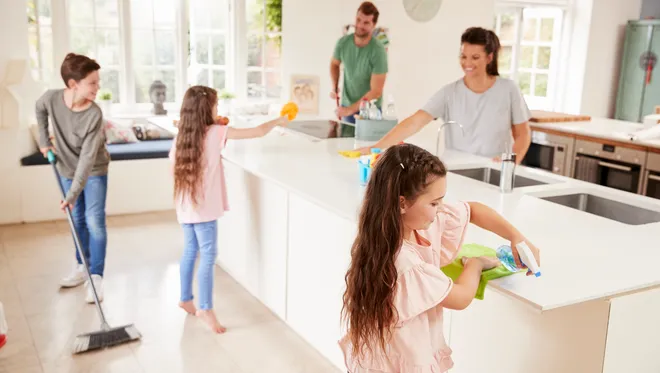 Teaching Teenagers Household Chores
Teaching Teenagers Household Chores
Teaching teenagers to participate in household chores is an essential step in fostering independence and responsibility. It also helps lighten the load for parents and prepares teens for adulthood. However, getting teenagers to take on these tasks willingly can be challenging. Here are some practical tips for teaching teenagers household chores effectively.
1. Start with a Conversation
Before assigning chores, have an open conversation with your teenager about the importance of contributing to household tasks. Explain how chores help the family function smoothly and prepare them for independent living. Emphasizing teamwork and the value of shared responsibilities can motivate them to participate more willingly.
2. Set Clear Expectations
Be clear about what tasks need to be done and how often. Providing specific instructions and demonstrating how to perform the tasks can help ensure they understand what is expected. For example, instead of saying, “Clean your room,” break it down into manageable steps like, “Make your bed, put away clothes, and vacuum the floor.”
3. Create a Chore Chart
A visual chore chart can help keep track of who is responsible for what tasks. It can be a simple chart on the fridge or a digital app that sends reminders. Assign chores on a rotating basis to keep things fair and prevent boredom from doing the same tasks repeatedly.
4. Lead by Example
Teenagers are more likely to engage in household chores if they see their parents doing the same. Demonstrating a positive attitude towards chores and working alongside them can set a good example. Show them that these tasks are part of everyday life and not just a punishment or burden.
5. Make It a Routine
Incorporate chores into the daily or weekly routine. Establishing a consistent schedule helps teenagers develop good habits and makes chores a regular part of their lives. Whether it’s setting a specific time each day for chores or assigning different tasks on different days, consistency is key.
6. Provide Incentives
While it’s important for teenagers to understand the intrinsic value of contributing to household tasks, providing incentives can be a great motivator. This could be in the form of an allowance, extra privileges, or a point system that leads to rewards. Ensure the incentives are meaningful to your teenager to keep them engaged.
7. Teach Time Management
Balancing chores with schoolwork, extracurricular activities, and social life can be challenging for teenagers. Teach them time management skills to help them plan their tasks effectively. Show them how to prioritize and break down larger tasks into smaller, more manageable steps.
8. Encourage Responsibility and Independence
Give teenagers ownership of their chores. Allow them to decide when and how they will complete their tasks within a given timeframe. This encourages responsibility and independence, as they learn to manage their own time and take accountability for their duties.
9. Offer Positive Reinforcement
Acknowledge and praise your teenager’s efforts and accomplishments. Positive reinforcement can boost their motivation and make them feel appreciated. Constructive feedback is also important; if a task is not done correctly, guide them on how to improve rather than criticizing harshly.
10. Be Patient and Flexible
Learning to do chores correctly takes time, and teenagers may not always get it right the first time. Be patient and offer guidance as needed. Flexibility is also important; if a teenager has a particularly busy week, be willing to adjust the chore schedule to accommodate their commitments.
Conclusion
Teaching teenagers household chores is an investment in their future independence and responsibility. By setting clear expectations, incorporating chores into a routine, providing incentives, and offering positive reinforcement, parents can encourage their teenagers to take an active role in maintaining the household. Patience and flexibility are key, as learning these skills takes time and practice. Ultimately, fostering a collaborative and supportive environment can make household chores a valuable learning experience for teenagers.